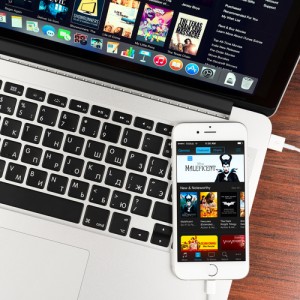by Jacqui Brauman
Accounts like iTunes and other services where you can buy music, movies, ebooks and TV shows are usually licensed services. These are not like an online service where you save you own material, like Dropbox or Instagram. Instead, when you use a service like iTunes you enter a service agreement with them to purchase or rent a license for the digital content.
 Your account is not transferrable, and cannot be assigned to someone else. It should be automatically shut down as soon as the service is notified that you die. Also, almost all services requiring a password have a condition in their agreement that you must not share your password with anyone else.
Your account is not transferrable, and cannot be assigned to someone else. It should be automatically shut down as soon as the service is notified that you die. Also, almost all services requiring a password have a condition in their agreement that you must not share your password with anyone else.
Apple uses its Digital Rights Management system to monitor how many times you share the music or other products you are licensed to use. You can share with up to 5 other computers. You are also allowed to copy the music or other digital content onto external drives, burn them onto CDs or DVDs, or convert the format. This is probably the way to save the content of your iTunes account, instead of it all disappearing when you die.
You won’t want to upload too much money or gift cards into your iTunes account, either. Unused funds in your iTunes account are not redeemable for cash, and not transferable to another account.
Services like Amazon or Microsoft are more strict with their online licensed products. For example, if you have a Kindle device and you’re collecting lots of ebooks, you can’t transfer them or pass them onto someone else.
So what can you do? Well, there aren’t any complete solutions:
- you can leave your physical devices to someone. But, as you know, access to your account is needed to keep up with updates. If updates aren’t done regularly, then the device becomes vulnerable and the new owner could lose everything. Within a couple of years the device could be obsolete, and there’s no way of transferring the content;
- you could hand over your passwords to your accounts to your next of kin. This sounds simple, and probably what most people do. But it’s actually a breach of the terms and conditions of your account. So if someone logs in and pretends to be you, they are committing a security breach – Apple or the service provider could terminate the account completely and ban your next of kin;
- with Apple content, you can at least share it with other users and burn it onto other devices or formats, so long as it’s only ever for personal use. This option is not available for all license service providers;
- your next of kin could plead with the service provider after you’ve passed away, for them to give them temporary access to your account. This will work to enable them to burn content, so that they can save it. But accounts cannot be transferred, so it would only be a temporary measure; or
- it’s a relatively new field, and not many solicitors are doing it, but you could have specific bequests in your Will about your online accounts. This is a developing area of law that still has to be properly tested over many of the service providers. But many of the service providers will recognise a gift or bequest of some forms of ownership. iTunes, Amazon and other license services remains an uncertainty due to the limitations on transferring accounts and non-ownership of the content. Stay tuned!
The next phase of online services seems to be iTunes radio, Pandora and other temporary services where you don’t buy a license to a specific content, but have a recurring account payment just to access a huge amount of material. There’s no confusion about owning anything here – you are hiring access. All your family needs to do is cancel the recurring payment if you die.





Leave A Comment